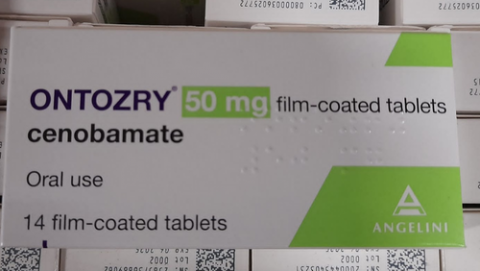
The National Centre for Pharmacoeconomics (NCPE) have updated Epilepsy Ireland that they have issued a positive recommendation regarding the potential reimbursement of the anti-seizure medication, Cenobamate.
The medication has been indicated for use in adults living with focal-onset seizures and has posted positive clinical trial results. Epilepsy Ireland made a submission to the NCPE in July supporting reimbursement of the medication.
As many reading this article will know, epilepsy is an individual condition and while there are currently many anti-seizure medications available in Ireland, it is crucially important that people with epilepsy have access to new treatments. This is because there is a percentage of the epilepsy community for whom which currently available treatments do not have an impact in treating their condition.
The NCPE’s decision means the medication is a step closer to being reimbursed – meaning that it will be made available under the Long-Term Illness or Medical Card schemes etc to those who are prescribed it.
However, the NCPE’s report is a part of a continuing process and the ultimate decision on reimbursement will be made by the HSE – via the HSE Corporate Pharmaceuitcals Unit and the HSE Drugs Group. This is confirmed in the NCPE response below:
The NCPE have completed the evaluation of Cenobamate (Ontozry®) for the adjunctive treatment of focal-onset seizures with or without secondary generalisation in adult patients with epilepsy who have not been adequately controlled despite a history of treatment with at least two anti-epileptic medicinal products. The factors the HSE must consider when reimbursing medicines are described in the Health Act (2013). The NCPE report considers three of these factors, comparative clinical efficacy, cost-effectiveness relative to current standard of care in Ireland, and budget impact. Therefore while the advice of the NCPE is important and contributes to the final HSE decision, these are not the only factors to be considered, and are not the final conclusion to the decision.
After the NCPE sends the report to the HSE Corporate Pharmaceuticals Unit (CPU), a period of price negotiation usually commences in conjunction with the HSE Drugs Group consideration of the NCPE report. A decision on reimbursement will be made by the HSE Drugs Group considering the NCPE recommendations regarding cost-effectiveness and budget impact, considering the discount offered by the manufacturer, and considering the other criteria identified in the Health Act (2013).
The NCPE report concludes that:
The NCPE recommends that cenobamate (Ontozry®) be considered for reimbursement as a second- or subsequent-line adjunctive treatment of FOS in adult patients with epilepsy who have failed treatment with two or more previous ASMs, including at least one adjunctive therapy*.
*This recommendation should be considered while also having regard to the criteria specified in the Health (Pricing and Supply of Medical Goods) Act 2013.
We will continue to closely monitor developments here and hope that the HSE will act quickly on the NCPE’s recommendation. Further updates will be provided on our website and social media channels as soon as any further news is received.
In the meantime, we would like to once again thank all those who provided input into our submission by outlining their experiences of living with focal-onset seizures.
